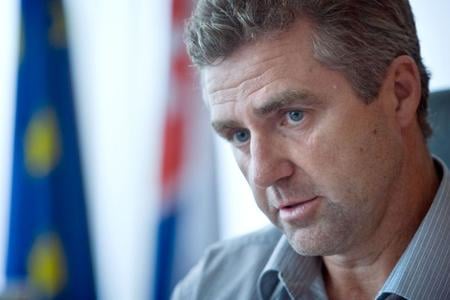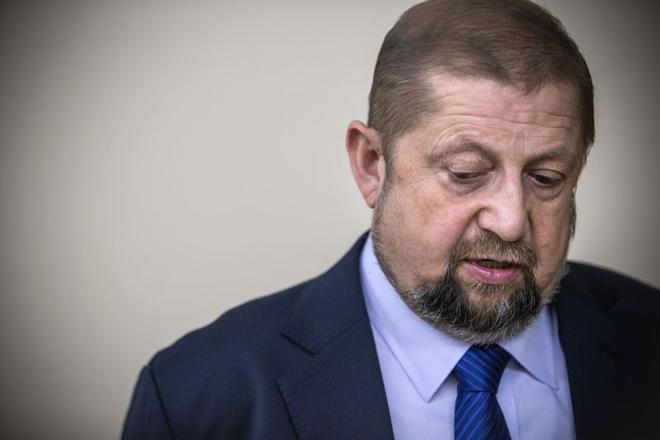The whole trial will now have to begin again, the Denník N daily reported.
The case goes back to the late 1990s, when Ján Ducký, general director of SPP, allegedly signed at least 24 controversial promissory notes, some of whose holders later tried to use them to demand billions of Slovak crowns from the state.
Ducký was murdered in January 1999. The circumstances surrounding his death have never been explained.

The criminal prosecution started in 2001 and since Ducký died, Maroš remained the only accused person in the case. Since then he has heard several rulings, with the last one being issued in November 2013.
Thanks to the verdict of Harabin’s panel, Maroš may now be released as it did not dismiss only the ruling of the Specialised Criminal Court, but also the ruling issued by the Supreme Court which reviewed the appeals of both Maroš and the prosecutor’s office. Harabin saw several flaws in the previously issued verdicts, as reported by Denník N.

Maroš was sentenced by the Specialised Criminal Court to three years and two months in prison and banned from running any business for seven years for modifying data in the economic and commercial register in January 2013. Both he and the prosecutor appealed the verdict. The Supreme Court’s appellate panel in November 2013 kept the length of the punishment, but found Maroš guilty of another crime. According to it, the former SPP financial director tried to violate the duties of managing someone else’s property. This verdict was again appealed by both Maroš and the prosecutor.
Harabin’s panel has so far decided only about Maroš’s complaint, but not about the complaint of the prosecutor’s office, Denník N wrote.
It accepted the claim that the appellate panel violated Maroš’s right to defence, a fair trial, and court protection. He allegedly could not respond to the change in the legal qualification, and thus present the evidence that would serve for his defence. Moreover, the court allegedly made a mistake when it dismissed the verdict and issued a decision without adding further evidence. Maroš also questioned the punishment, saying it is too high, especially regarding how long the trial has been taking place, as reported by Denník N.



 Štefan Harabin (source: Sme)
Štefan Harabin (source: Sme)